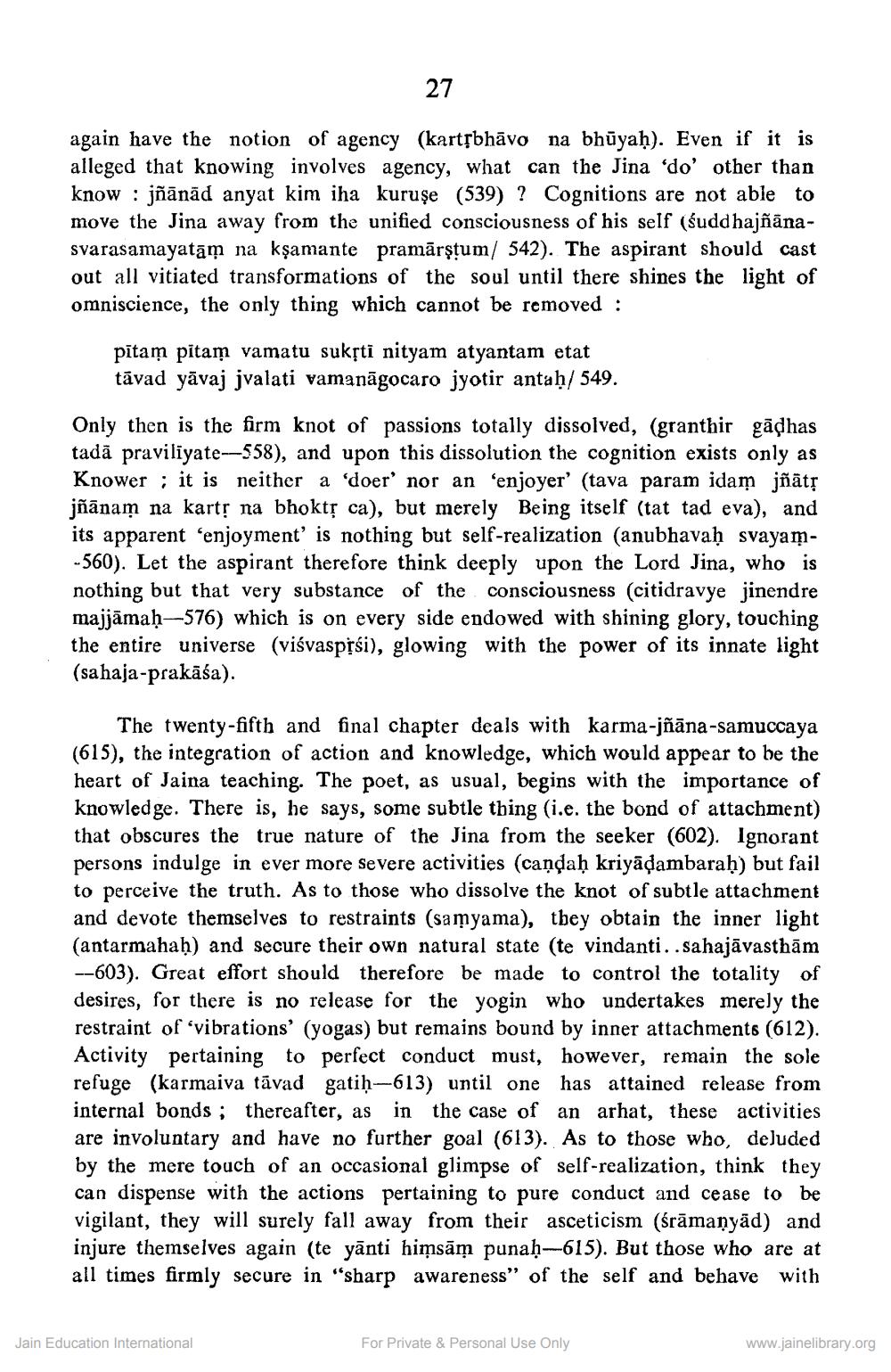________________
27
again have the notion of agency (kartṛbhāvo na bhūyaḥ). Even if it is alleged that knowing involves agency, what can the Jina 'do' other than know jñānād anyat kim iha kuruşe (539) ? Cognitions are not able to move the Jina away from the unified consciousness of his self (śuddhajñānasvarasamayatām na kşamante pramārṣṭum/ 542). The aspirant should cast out all vitiated transformations of the soul until there shines the light of omniscience, the only thing which cannot be removed :
pitam pitam vamatu sukṛti nityam atyantam etat tavad yāvaj jvalati vamanāgocaro jyotir antaḥ/ 549.
Only then is the firm knot of passions totally dissolved, (granthir gādhas tada praviliyate-558), and upon this dissolution the cognition exists only as Knower; it is neither a 'doer' nor an 'enjoyer' (tava param idam jñātṛ jñānam na kartṛ na bhoktṛ ca), but merely Being itself (tat tad eva), and its apparent 'enjoyment' is nothing but self-realization (anubhavaḥ svayam-560). Let the aspirant therefore think deeply upon the Lord Jina, who is nothing but that very substance of the consciousness (citidravye jinendre majjāmaḥ-576) which is on every side endowed with shining glory, touching the entire universe (viśvaspṛśi), glowing with the power of its innate light (sahaja-prakāśa).
The twenty-fifth and final chapter deals with karma-jñāna-samuccaya (615), the integration of action and knowledge, which would appear to be the heart of Jaina teaching. The poet, as usual, begins with the importance of knowledge. There is, he says, some subtle thing (i.e. the bond of attachment) that obscures the true nature of the Jina from the seeker (602). Ignorant persons indulge in ever more severe activities (candaḥ kriyāḍambaraḥ) but fail to perceive the truth. As to those who dissolve the knot of subtle attachment and devote themselves to restraints (samyama), they obtain the inner light (antarmahaḥ) and secure their own natural state (te vindanti..sahajāvasthām --603). Great effort should therefore be made to control the totality of desires, for there is no release for the yogin who undertakes merely the restraint of 'vibrations' (yogas) but remains bound by inner attachments (612). Activity pertaining to perfect conduct must, however, remain the sole refuge (karmaiva tavad gatiḥ-613) until one has attained release from internal bonds; thereafter, as in the case of an arhat, these activities are involuntary and have no further goal (613). As to those who, deluded by the mere touch of an occasional glimpse of self-realization, think they can dispense with the actions pertaining to pure conduct and cease to be vigilant, they will surely fall away from their asceticism (śrāmaṇyād) and injure themselves again (te yanti himsām punaḥ-615). But those who are at all times firmly secure in "sharp awareness" of the self and behave with
Jain Education International
For Private & Personal Use Only
www.jainelibrary.org




